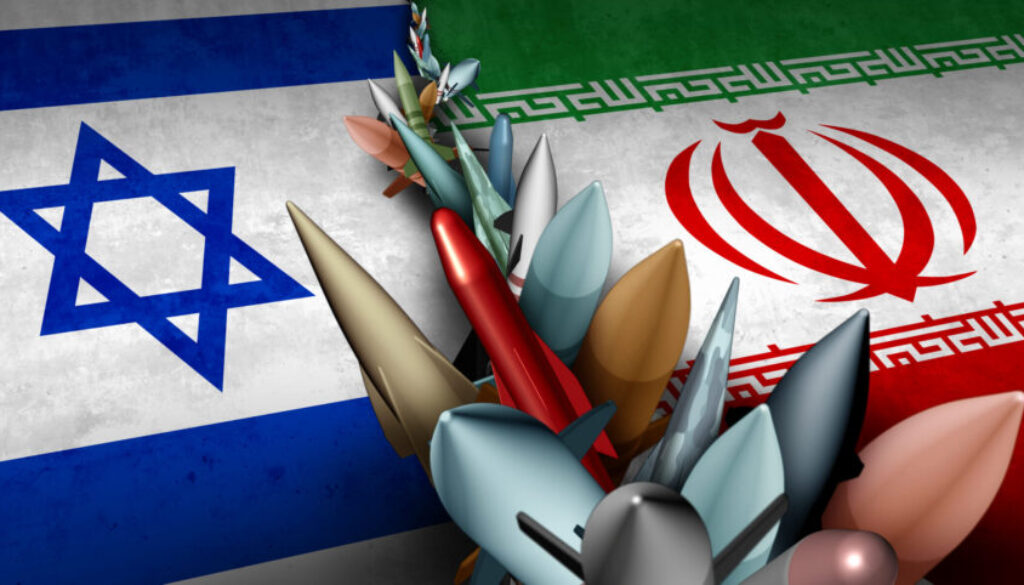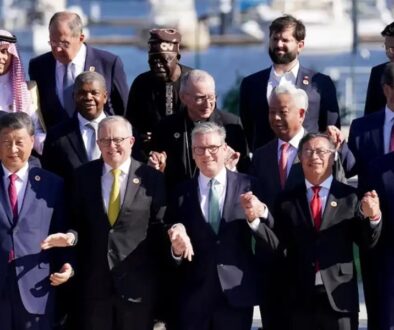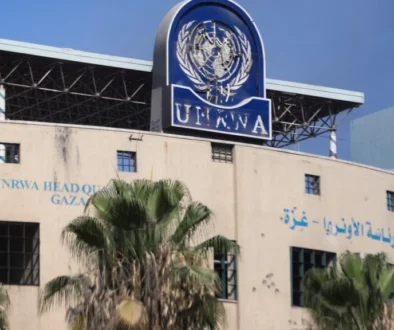Israel Strikes Strategic Airstrikes on Iran as Tensions Rise.
On 26 October 2024, ,Early Saturday morning ,Israeli Forces launched a heavy airstrike against Iranian military targets. The country has been on high alert for long and rising tension with Iran. It now strikes at Iran’s missile production and at air-defense systems. An airstrike was done directly against Iran attacks that occurred earlier this month of October. In the general overview we shall discuss why Israel went ahead with the strike, sites that were attacked, responses from Iran and the world at large and possible effects on Middle Eastern stability.
Objective: Revenge and Regional Policy.
Israel’s actions are well justified by its national security and opposition to Iran’s regional domination. The tensions between the two countries have been on the rise over the last two years because Iran is supporting various proxy forces and is still advancing its missiles. Prime Minister Benjamin Netanyahu said this airstrike was a protective measure for Israeli citizens and that Israel would counter any direct attacks.
Iran simultaneously launched 181 ballistic missiles in coordinated attacks towards some of Israel’s key air bases on 1st October. This is the most elaborate display of military might in a recent year that Iran has directed towards Israel. Most though were intercepted by Israel’s Arrow 3 defence systems while ten of those managed to evade that and destroyed material in various air bases in Israel. After these events, the Israeli authorities have claimed that they will react very aggressively towards any act of aggression and thus this morning attack was not less foreboding than inevitable.
Which Iranian Sites Were Hit?
Media reports indicate that Israel has attacked largely the military infrastructure related to missile development and defense. These include stockpiles of missiles, manufacturing plants, and surface-to-air missile systems-all critical elements in Iran’s offensive capabilities to threaten attacks into the region. The Israeli officials argued that the locations were chosen based on a policy of discrimination that sought to minimize civilian casualties and target military objectives only while ensuring that Israel did not want to engage with Iran’s nuclear facilities, which would likely attract further international condemnation.
Military analysts believe that Israel has a policy of attacking some specific installations that would make the whole region weaker but showing caution not to inflame the situation fully into war. Targeting these installations would weaken Iran’s immediate threat to its air space and deny it the ability to unleash retaliation quickly.
History: Background of Israel-Iran Relations
Both are part of a larger Middle Eastern geopolitics narrative and stand on opposite sides on several regional issues. To the Israelis, Iran’s influence is increasingly perilous to their national security through their support for Hezbollah and other allied factions. To the Iranians, the alliances Israel has with other nations such as the United States and other players in the region represent a danger to their own regional interests.
Historically, Israel has taken an aggressive position towards any form of incursion Iran makes on her borders or within her circle of influence. This history of centuries-long preemptive action was known as the “Begin Doctrine,” and meant that Israel was taking preventive strikes on potential existential threats-like facilities-based on her security interests. Given the years of Iran’s increased missile productions and military entrenchment, Israel has stood tall and resolute showing a more aggressive attitude.
International Response to Israeli Strike
The international powers had varying responses to the actions of Israel. The United States that had been an ally to Israel pleaded for restraint on both parties. Of course, the American officials unequivocally supported the right of the state to defend itself but pleaded for restraint to avoid further escalations in a very tensed region. The EU stated to focus on de-escalation and also added that any future escalations may lead to protracted war and destabilization of the Middle East.
Iran have outright condemned the attack. The Iranian officials termed the attack as an act of aggression and warned that if Israel continues with such military maneuvers, they will retaliate. Iranian media also alleged Israel for having crossed international norms and vowed to continue strengthening their military machinery. Experts warn that Iran’s deep-rooted ties with regional allies like Hezbollah might rope in these groups to retaliate against Israel increasing the conflict.
Caught in the Crossfire: Middle Eastern Nations
Tensions between Israel and Iran may also hold greater implications for the middle eastern countries caught in the conflict. Countries like Saudi Arabia, United Arab Emirates and many more in the region do not want to see a confrontation between Israel and Iran. These countries, most of whom are strategically aligned with Israel through diplomatic or economic ties, regard Iran’s mounting influence as a threat but also don’t want the regional fallout of an Israel-Iran confrontation.
To elaborate on this further most of these countries have, in the last few years, made attempts at greater regional cooperation and increased conflict will hinder these developments. The unofficial Saudi collaboration with Israel to counter Iranian influence can become a more delicate affair if heightened.
Implication for Regional Security
The implications of the Israeli airstrikes on the larger scenario are complex and create regional stability concerns. Analysts argue that Iran can now increase support to its proxy forces in neighboring countries as indirect pressure on Israel. The “axis of resistance” of which Hezbollah and factions in Iraq and Syria can be mobilized as a response to Israel’s actions. Hezbollah has an impressive arsenal of missiles and will always constitute a threat to Israel.
Another one pending in the pipeline is possibly that incidents today may lead a long game of tit-for-tat between Israel and Iran whereby each one hits the other strategic assets. This may exacerbate things into full-scale warfare and not only does it have to be two countries fighting but also third parties of regional players
What is Next for Israel and Iran?
Both countries are deeply entrenched in their position, and yet it remains to be seen whether diplomatic channels will open and bleed the tension off of the situation. At least, neither side came out stating it wanted to go to war; as long as provocative actions continue to be implemented, then that danger does exist. Diplomatic backchannels, possibly led by global powers such as the United States or Russia, may prevent a situation from getting so far out of control.
Most regional experts believe the step of de-escalation will be conditioned both with Israeli commitment to de-scoping military actions but to also show restraint on the Iranian end when it comes time for unwinding activities pertaining to proxies targeting Israeli interest structures. Regional structures-in particular the Gulf Cooperation Council, for example – likely would be enablers given the need for this stable region.
FAQs:
1. Why is Israel now attacking Iran in 2024?
It was a retaliatory airstrike following an attack on October 1 wherein Iranian missiles attacked Israeli airbases as a warning to Israel, threatening its security. These strikes by Israel are likely to weaken Iran’s capacities in producing missiles while decimating the attack.
2.What does Israel target in its Iran strikes?
Targets were storages and production facilities of missiles, Iranian surface-to-air defense. These locations were chosen minimizing civilian losses and further cutting Iran’s military apparatus that directly participates in attacks on missiles.
3.Can this eventually trigger full-scale war between Israel and Iran?
o. Neither party shows an intent or thirst for full-scale war as this situation is too volatile in a region. Tied to its alliance with Hezbollah and others, Iran might escalate retaliatory actions or responses that will encourage other players in the region into conflict.
4. What are Inevitable Aftermath of attacks from Israel into Iran mean?
The strikes may provoke retaliatory actions against Israel from Iran’s regional allies, raising tensions and the prospects of indirect conflict by proxy with Iran. Regional stability and international relations across the Middle East would be affected.
Ending Remarks:
The battles today between Israel and Iran reminded the world of a fragile peace in the Middle East. Here, side is being defended and each watches the other with a worried eye, fearing one little spark could set the area to further instability.


